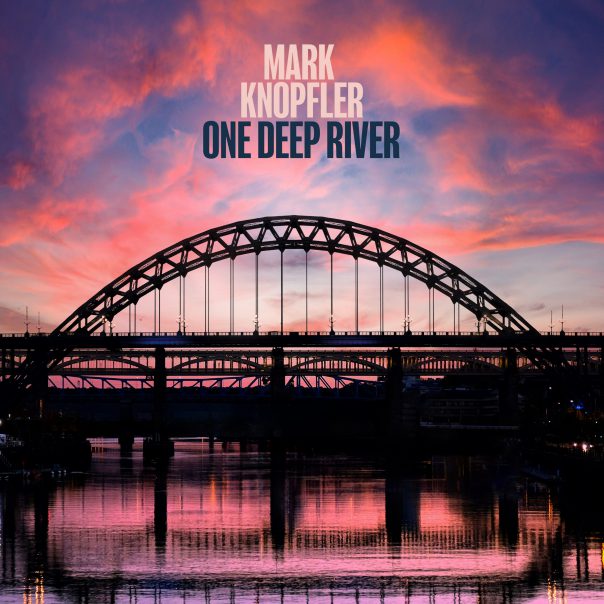ALBUM REVIEW: Mark Knopfler lets ‘One Deep River’ wash over his characters

Mark Knopfler, “One Deep River.”
Mark Knopfler’s musical voice isn’t only that of the guitar lines recognizable to anyone who’s ever heard “Sultans of Swing,” but also the stories he tells. While his old band Dire Straits may be more famous for its radio and MTV singles like “Money for Nothing” and “Walk of Life,” the bulk of Knopfler’s output over the past five decades—both band and solo—is really more that of an introspective singer-songwriter.
One Deep River
Mark Knopfler
Blue Note/EMI, April 12
8/10
Get the album on Amazon Music.
That is made plain again now on One Deep River, Knopfler’s first album since 2018’s Down the Road Wherever. The new album, much like the last few before it, is loaded with carefully crafted tales of regular people beaten down by life. It’s about drifters who would rather leave than love, people whose professions kill their souls, locals dismayed as their beloved small town has been stretched hopelessly out of shape by an oil boom and, ultimately, the redemptive power in that “one deep river” of stability flowing through town, its changes measured by centuries.
Like Randy Newman, Mark Knopfler has done notable movie soundtrack work (including “The Princess Bride” and “Local Hero”). Also as with Newman, his non-soundtrack albums allow him to dive deep into his characters and their settings.
Where Newman usually emphasizes details about the often marginalized people who populate his songs, Knopfler deals more in what his mostly everyday-type characters are feeling, the oppressive situations they’ve either been put in, or have put themselves in. And on One Deep River, a prevalent theme is resignation tied to that. “Sweeter Than the Rain” hears from a man who may be a hired killer. “I take my orders, ask few questions … It’s no real life for a decent man,” Knopfler sings. In a similar way, the haunting “This One’s Not Going to End Well” is from the point of view of people watching powerful slave traders do business in their midst and trying to go about their business as evil and pain prospers around them. It won’t end well “for anyone,” he says.
Age has turned what was once a laconic voice into a decidedly world-weary one, which for these songs is a good fit.
Mark Knopfler offers a history lesson about how three brothers attempted the last major American train robbery in 1923 in “Tunnel 13” on the California-Oregon border, killing four train crew members and getting virtually no loot in the process. But even this classic romantic tragedy gets a jaded modern update, about how Union Pacific container trains in Southern California are robbed with “crowbars and drills damn near every day.”
Knopfler’s mostly long-time accompanists include producer Guy Fletcher, guitarist Richard Bennett, pianist Jim Cox, percussionist Danny Cummings and bassist Glenn Worf. The musical landscapes they create are almost entirely midtempo, but typically atmospheric, almost hypnotic in spots. Adding flavor are not only Knopfler’s lead guitar lines, but also the pedal steel and lap steel supplied by Greg Leisz, who’s played with dozens of notable artists over the years, most recently Jackson Browne. Leisz’s playing adds a measure of melancholy that fits these songs to a T.
There’s nothing remotely akin to the bright pop of “Walk of Life” or “Twisting by the Pool” to be found on One Deep River. But a listener could easily get lost in the story-craft or the sympathetic musical support.
Or both.
As he says in one of the new songs, Mark Knopfler is “staying just ahead of the game.”
